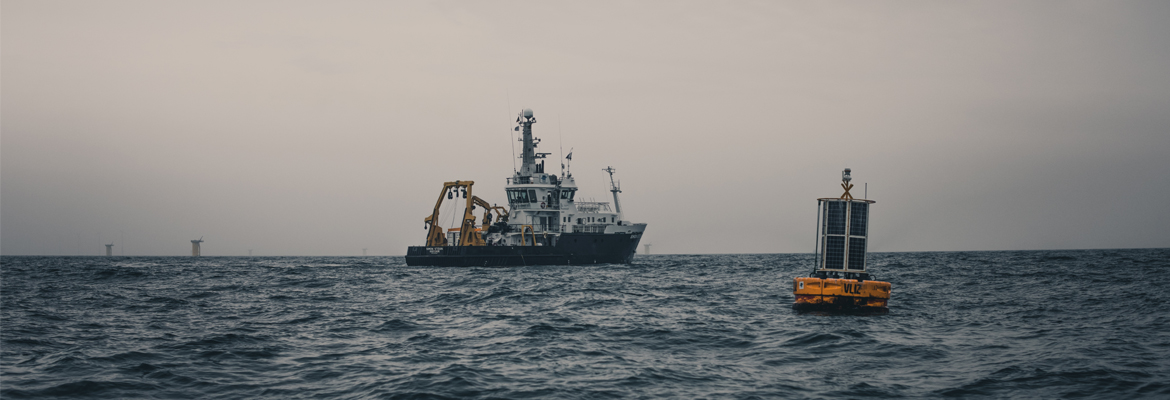
The network of ICOS Ocean stations provides long-term observations from 28 stations in eight countries. The stations monitor carbon up-take and fluxes in the Atlantic and the Nordic, Baltic and Mediterranean Seas. The measuring methods include sampling from research vessels, moorings, buoys and commercial vessels. They all have been equipped with state-of-the-art carbonate system sensors.
ICOS Ocean stations are based on instrumented Ships of Opportunity (SOO) and Fixed Ocean Stations (FOS).
The SOO are either research vessels or commercial ships operating on regular, repeated ship routes on the European shelf and marginal seas and those of cargo vessels on open ocean routes. They provide surface ocean and atmospheric data.
The FOS are fixed sites in the ocean, generally on open ocean moorings. They are able to provide near-real-time data that also contain information from greater depths, for example, about temperature anomalies. These platforms require visits from well-equipped research vessels at least once a year. Coastal FOS can be equipped with shore-based towers called Marine Flux Towers (MFT) for direct flux measurements. Such mixed stations, by nature, serve both the ocean and ecosystem community.
At each Ocean station, a number of scientists, researchers, technicians and other staff members from the national partner institutes of ICOS work in varying and often challenging conditions. Each station is managed by Principal Investigator. The Principal Investigators form together the Ocean Monitoring Station Assembly (MSA) to discuss, develop and improve the scientific and technical bases of the observations at the ocean stations.
All Ocean stations are strongly standardised, utilising similar methodologies and equipment. The ICOS standards cover recommendations on the best methods for making the measurements through to quality control and management of the data. All labelled stations have an ICOS agreed data quality and will use exactly the same procedures for submitting the data.
The data collected at the ocean stations are processed and quality controlled by the Ocean Thematic Centre.
ICOS Ocean stations network
The map shows where the ICOS Ocean stations and ship routes are located.